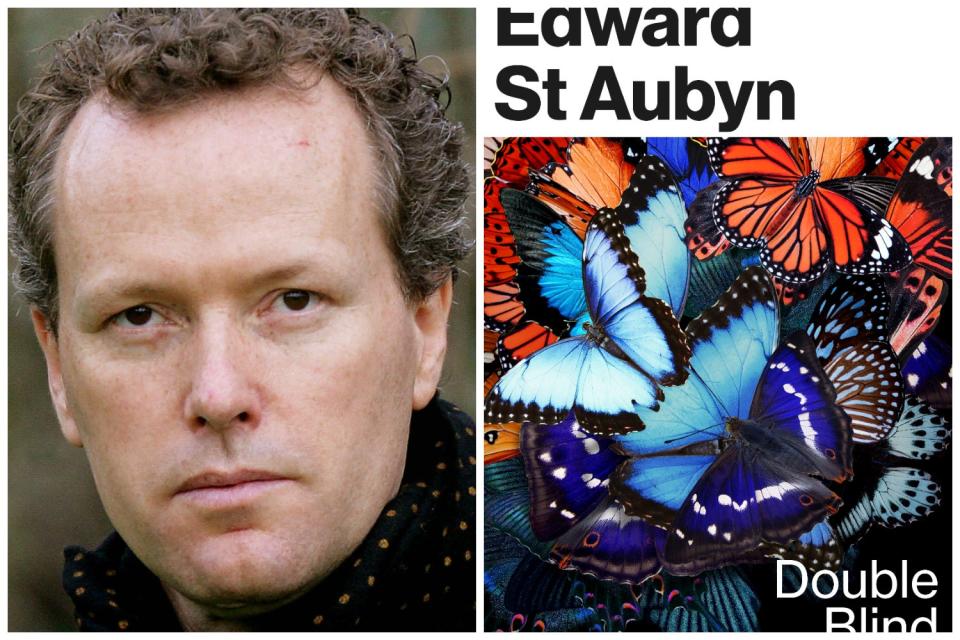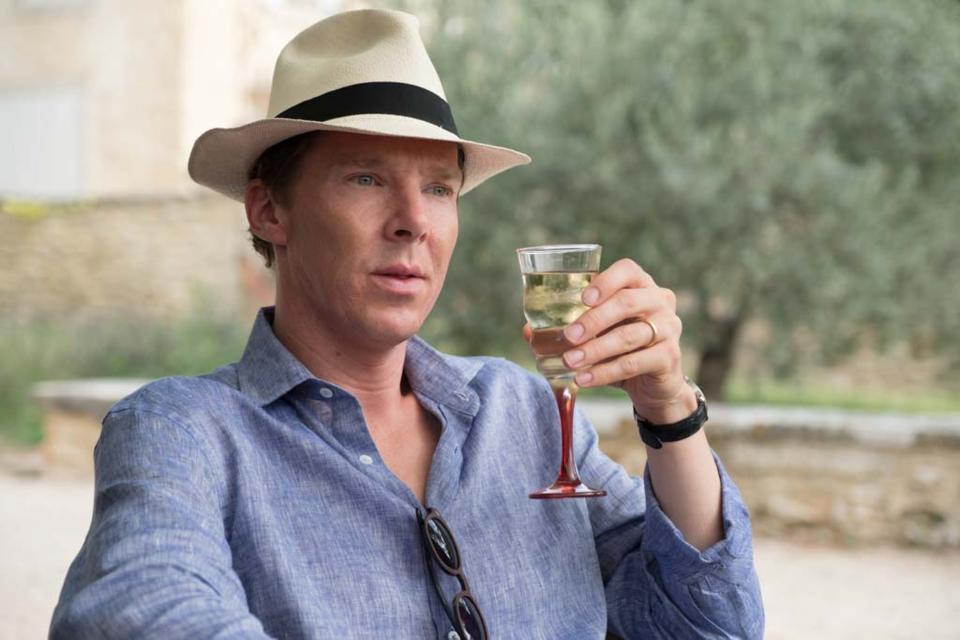Double Blind by Edward St Aubyn review:

Edward St Aubyn
(Harvill Secker)In his five Melrose novels Edward St Aubyn captured the traumatising brutality of his English upper-class upbringing - an extraordinary world of wealth, entitlement, addiction and amoral behaviour - with unparalleled brilliance.
The autobiographical sequence, published between1992 and 2011, chronicled the life of his alter-ego Patrick Melrose from early childhood when he was regularly raped by his sadistic father and neglected by his alcoholic mother, into drug-addled adulthood, marriage, fatherhood, relapse, and eventually to an acceptance of his past through therapy and sobriety.
David Nicholls’s adroit screen adaption for the TV miniseries in 2018, with Benedict Cumberbatch perfectly cast as Melrose, brought St Aubyn a whole new readership but the question of whether he can ever better that achievement remains so far unanswered.

There have been two other less directly autobiographical novels, A Clue to the Exit, about a man with six months to live risking everything, and Lost For Words, a satirical send-up of our literary prizes, while Dunbar, his modern retelling of King Lear as part of the Hogarth Shakespeare series, was despite his recasting of Lear as a modern media mogul, constrained by the original plot.

Double Blind is an ambitious novel of big ideas about genetic determinism, heritability, the usefulness of psychotherapy, the effects of climate change and the role of technology in neuroscience. Then there are the old favourites: the allure of great wealth, glamorous locations and mind-altering Class A drugs, all of which continue to enthral St Aubyn.
The novel opens with thirty-something Francis working on a re-wilding project on an estate in West Sussex owned by a rich, philanthropic couple, clearly based on Isabella Tree and Charlie Burrell’s Knepp Wildland Project. Francis has been hired to help them cultivate their ‘English savannah’ in which Tamworth pigs, English longhorns, herds of Exmoor ponies and other species are encouraged to roam freely.
Francis is by nature introspective and solitary, and has just started a relationship with Olivia, a clever biologist he met at a ‘megafauna conference’ in Oxford. Olivia is close to her psychotherapist parents and grew up in middle-class Belsize Park. She researches epigenetics and is co-writing an academic paper with her father about the causes and treatment of schizophrenia. She also has a psychologist brother, Charlie, but unlike him, is adopted.
Her biological mother gave her up as a baby but kept her twin brother, who was later taken into care after being physically abused. Olivia’s father has just started treating a schizophrenic young man, Sebastian, who tells him, possibly truthfully, possibly not, that he was taken into care as a toddler and still has scars from being burned with cigarettes. He is exactly Olivia’s age.
Lucy, Olivia’s best friend from university, has just returned to London after four years in New York to run the office of Digitas “a digital, technological and scientific venture capital firm”. The startup is the brainchild of American hedge funder tycoon, Hunter Sterling, a charismatic, high-functioning alcoholic junkie with sumptuous homes in California, New York, London and the South of France, and by far the most compelling character in the book; St Aubyn is clearly infatuated with him.
Early on, Lucy has a seizure and is diagnosed with a brain tumour which may or may not prove fatal but has the effect of intensifying her close relationships. Olivia becomes the responsible best friend taking Lucy to her appointments, Francis becomes Olivia’s responsible, caring partner, and Hunter Sterling morphs into Lucy’s overprotective boss and lover.
There are more threads and characters in an increasingly unsatisfactory story, including a pompous cardinal, a naive Franciscan monk and a bleakly deterministic oncologist, who are further foils for St Aubyn’s big ideas.
There are also the lovingly described lavish parties, including one at which Kraftwerk perform at Hunter’s Matisse, Calder and Picasso pottery-filled home outside Nice, as well as many lines to enjoy, such as a horny, Californian yoga-bunny telling Francis: “My family made a fortune in pretzels and I’m laundering the money with philanthropy”. Classic St Aubyn!
His sharp ear for dialogue and his observation of people’s behaviour hover between funny, disdainful and downright sneering - he always was a snob - while his evocation of smoking heroin is nothing less than a full-on seduction: “His mind was a far more powerful instrument than he had ever dared to imagine. It was like a great Alaskan river after a spring melt, but instead of flowing with churning brown water, this river flowed with mercury, the brilliant mirror of its surroundings reflecting the sky and the trees and the clouds, but also endowed with a penetrating intelligence that knew them for what they were.”
His prose can be mesmerising at times, but not when his characters veer into rambling interior monologues about consciousness and the creation of the universe. That’s just showing off - and the ending is a washout.
The problem remains that in Melrose, St Aubyn succeeded in transforming his own traumatic life experience into something extraordinarily and powerfully convincing, and it may be, quite simply, that he is incapable of doing that with the lives of anyone else but himself.
Double Blind by Edward St Aubyn (Harvill Secker, £18.99)
Read More

 Yahoo Sport
Yahoo Sport 





































